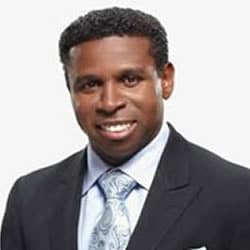Here are some tips from the National Speakers Association (NSA) on how to build excitement and registration numbers once your have found the perfect expert for your group.
Tantalizing Titles
- Get off to a strong start by assuring the session has a catchy title. Start with a short, clever title followed by a subtitle that explains the benefit of the session.
- Successful brochures contain titles that capture attention but also immediately answer the question, “So what?” The subtitle should contain phrases such as “How to,” “10 tips,” “master five steps,” etc.
- Most importantly, make sure the session matches the description.
Work Your Web Site and Create a Buzz with E-Mail
- Familiarity breeds attendance, and your website is a great tool to introduce your speaker to your potential audience.
- Post a detailed description of the session and the speaker on your site. Photos of the speaker in action are a good addition. You can also ask your speaker to provide you with audio or video excerpts from a previous presentation to promote the program before the event.
- When your event is over, post audio or video excerpts from the session to reinforce the program’s key points and educate members who were unable to attend.
- E-mail is another easy and inexpensive way to promote your event and your speaker. Use it to remind members to register. Send them links to information and online registration forms. Generate a pre-program buzz by sending an e-mail questionnaire to your members. Add a personal touch by having the presenter send a “welcome” message to your attendees.
The Write Stuff
- Chances are your presenter has written much on the subject at hand. You can also ask the speaker to craft a customized article for your group or have a member of your staff conduct an interview. Provide links to the articles on your Web site as well. This builds the speaker’s credibility and offers value-added information for your members.
- If your speaker is published, use the speaker’s book to build excitement for the presentation. You can give attendees the book when they register. For added panache, have a book waiting to greet members in their hotel room along with a welcome letter from your president.
The Media: Get Ready
- Gather everything you need to promote your speaker to the media. Request that the speaker provide you with photos. They can be black & white or color, either head shots or action shots.
- The speaker should also provide you with a short biography and a brief write-up on the program including key points, what the attendees will learn and why the he or she is qualified to speak on the topic.
- Prior to the event, send a short news release to the calendar editors at local daily newspapers and industry-related publications. Invite key editors to attend the event and make sure they get a copy of the program and other promotional materials.
The Media: Get Set
- Find out when your speaker is going to arrive and when they are available for interviews. Keep a close eye on the news the week of your event. Is there a way to tie your speaker’s expertise into a current news peg? For instance, if your speaker’s area of expertise is technology, perhaps they can talk about the latest hacking scandal. If you want local media to cover the speech, you must determine the news angle and pitch it hard.
- Think about what events would generate good photos or visuals for television cameras. Make follow-up calls to make sure the journalists have the information you sent them. Find out if the speaker has a publicist or PR firm and if so, partner with them on generating publicity.
The Media: Go!
- On the day of the event, write a media alert including who, what, when, where and, most importantly, why their audience needs to know about your event and your speaker.
- Finally, be prepared for the media when they arrive on site. Have one of your staff or a trusted volunteer free to squire them around. Introduce them to the subjects they need for interviews. Have a good place in mind to conduct the interviews and take photos–try to get your association’s name or logo in the background.
The Party’s Over
- Professional speakers know that a program is not a one-time event, but an ongoing process. They will often offer to send an e-mail to attendees with some value-added links to additional information. Your members should be able to benefit from the presentation long after it is over, and your association should continue to gain exposure as well.
- Look for anecdotes from your members about how they were touched or motivated by the session. How do they plan to implement what they have learned? Select the best photos and combine them with after-the-event news releases for ongoing exposure.
Article modified from materials of the National Speakers Association.


